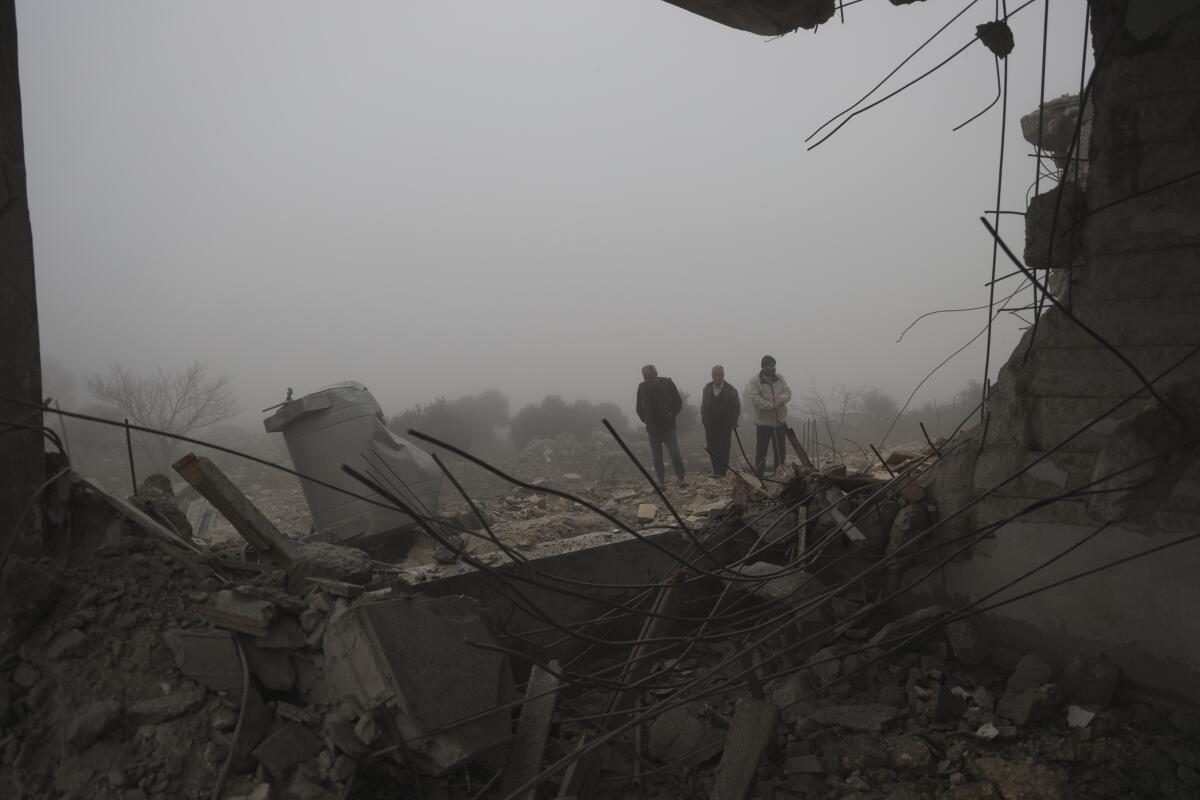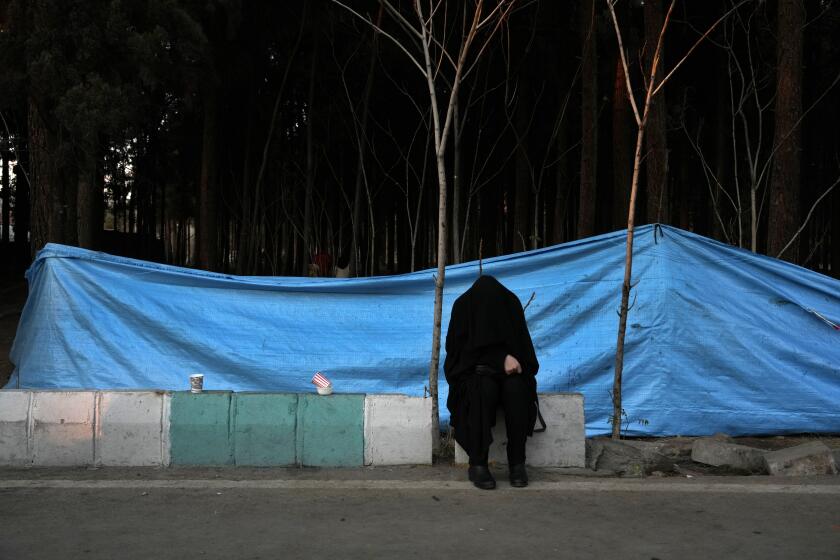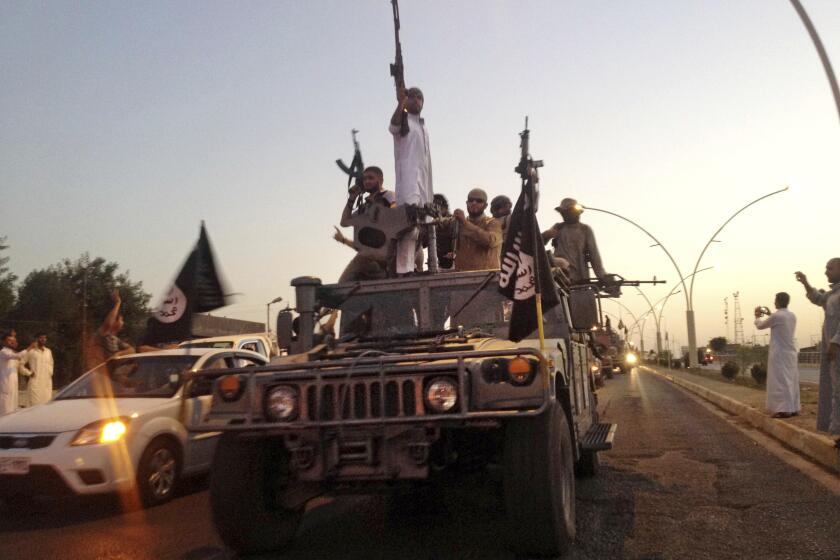Baghdad recalls ambassador from Iran, summons Tehran’s envoy over strikes on northern Iraq

- Share via
IRBIL, Iraq — Iraq recalled its ambassador to Tehran for consultations and summoned Iran’s envoy in Baghdad on Tuesday in protest over Iranian strikes on northern Iraq that killed several civilians overnight, the Iraqi Foreign Ministry said.
The Iranian attack was “a blatant violation of the sovereignty of the Republic of Iraq, strongly contradicts the principles of good neighborliness and international law, and threatens the security of the region,” the Foreign Ministry said in a statement.
Iran fired missiles late Monday at what it said were Israeli “spy headquarters” in an upscale neighborhood near the sprawling U.S. Consulate compound in Irbil, the seat of Iraq’s northern semi-autonomous Kurdish region, and at targets linked to Islamic State in northern Syria.
Iran’s Revolutionary Guard said in a statement Tuesday that it launched four Kheibar missiles at Islamic State positions in Idlib in Syria and 11 precision ballistic missiles at the Kurdish region in northern Iraq, where it said it hit a center of Mossad, the Israeli intelligence agency.
Qassim Araji, the advisor for national security affairs to Iraqi Prime Minister Mohammed Shia Sudani, said Iran’s “claims of targeting a Mossad headquarters are baseless.” Araji is heading a committee investigating the attack on Irbil.
Turkey’s Defense Ministry says that the military has carried out airstrikes targeting Kurdish militants in neighboring Iraq and Syria.
Iran’s strikes came after Islamic State claimed responsibility earlier this month for two suicide bombings targeting a commemoration for an Iranian general slain in a 2020 U.S. drone strike. The attack in Kerman killed at least 84 people and wounded 284 others at the ceremony honoring Revolutionary Guard Gen. Qassem Suleimani.
Last month, Iran accused Israel of killing a high-ranking Iranian general, Seyed Razi Mousavi, in an airstrike on a Damascus neighborhood.
It was unclear whether the strikes in Syria had, in fact, hit any targets associated with Islamic State.
Mounir Mustafa, deputy director of the civil defense in northwest Syria, also known as the White Helmets, said one of the strikes in Idlib targeted a medical clinic that was no longer operating in the village of Talteta in northwest Idlib province. Two civilians suffered minor injuries, he said.
The Islamic State group claims responsibility for suicide bombings targeting a commemoration for an Iranian general slain in a 2020 U.S. drone strike.
Sami Qassim, who lives near the targeted site, said that the clinic was empty and that there were no militant activities in the area.
The strike in Irbil killed at least four people, among them Peshraw Dizayi, a prominent local businessman with a portfolio that included real estate and security services, along with members of his family.
The U.S. condemned what State Department spokesperson Matthew Miller described as “Iran’s reckless missile strikes.”
Iranian Foreign Ministry spokesperson Nasser Kanaani said in a statement that the strikes in Iraq and Syria were “in line with the resolute defense of the country’s sovereignty and security, countering terrorism, and part of the Islamic Republic’s punishment against those who threaten the country’s security.”
The Islamic State group announced the death of its little-known leader, Abu Ibrahim Hashimi Qurayshi, who led the group since November.
He said that Iran, in “a precise and targeted operation, identified the headquarters of the criminals and targeted them with accurate and precision-guided projectiles.”
A few hundred demonstrators gathered in Irbil on Tuesday to protest the attacks.
More to Read
Sign up for Essential California
The most important California stories and recommendations in your inbox every morning.
You may occasionally receive promotional content from the Los Angeles Times.












